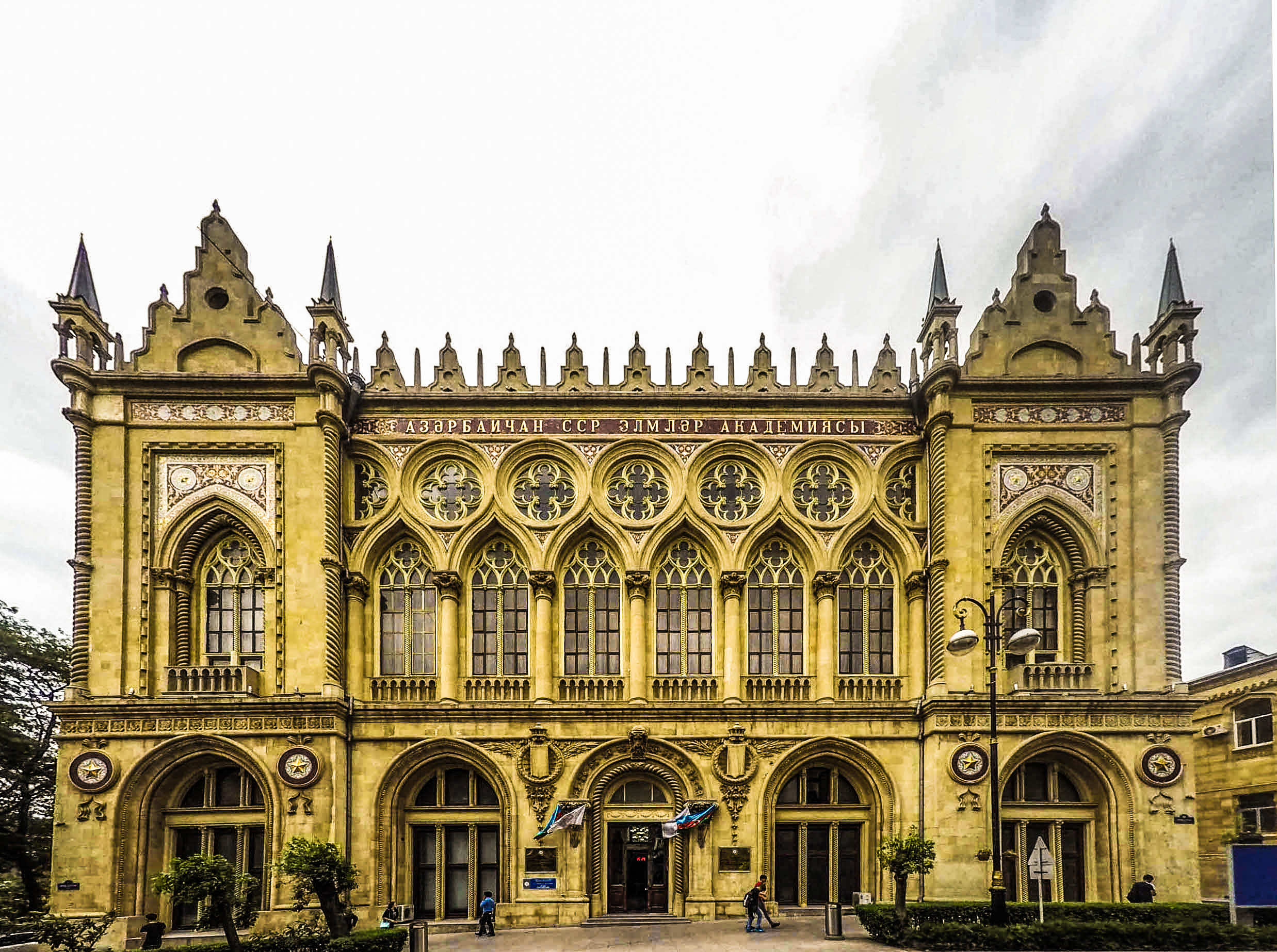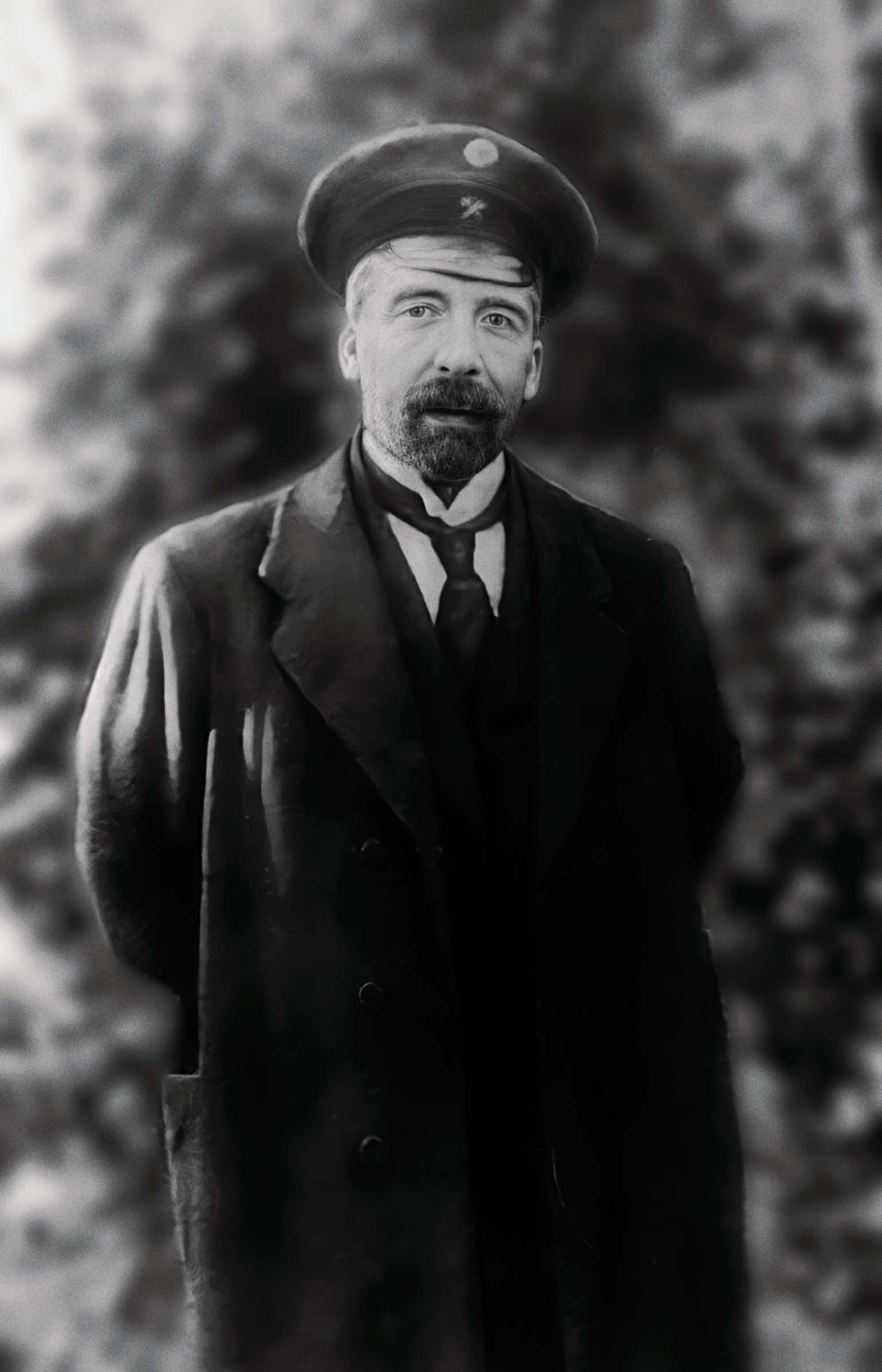Baku Congress of Caucasian Muslims
After the February revolution, all political parties in Azerbaijan became legal, new political parties ("Turk Ademi Merkeziyyet Party", "Irshad") were formed. However, in the early days of the revolution, none of these parties was able to lead the national movement alone. Therefore, on March 29, 1917, in order to manage all national and political forces from one center, a temporary council of Muslim public organizations was established with branches in Baku and other provincial cities - the Baku Muslim Public. A.M. Topchubashov, F. Khoyski, N. Narimanov, A.B. Amirjanov, M.A. Rasulzade, M. Asadullayev, Y. Aliyev, M. Chikhanov, M.A. Aghaalizade, B. Kh. Javanshir, I.B. Gabulov, M.H. Hajinski, I. Heydarov, S. Akhundov, A. Taghiyev were elected members of the Committee. M.H. Hajinski was elected the chairman, and M.A. Rasulzade was elected his deputy.
The first step to determine the goals and directions of the national movement in the new revolutionary conditions was taken at the Congress of Caucasian Muslims held in Baku (in the Ismailiyya Palace) on April 15-20, 1917.
Representatives of political parties and public organizations of Azerbaijan, as well as representatives of Muslims of the North Caucasus, Georgia and Iravan participated in the congress. More than 300 representatives from various public organizations participated in the congress. The congress was solemnly opened by the Chairman of the Provisional Committee of Baku Muslim Public Organizations, M.H. Hajinsky. A. M. Topchubashov, N. Narimanov, I. B. Heydarov, N. B. Yusifbeyli, F. Kh. Khoyski and M. H. Hajinski to the presidium of the Congress, M. A. Rasulzadeh, I. Kabulov, M. M. Akhundov, M. Mahmudov, H. Aghayev and M. Mirmehdiyev to the secretariat were elected.
At the opening ceremony, A. Topchubashov, who was elected the chairman of the congress, called on all the peoples of the Caucasus to unite for the sake of the common homeland. Chairman of the Executive Committee of the Council of Baku Public Organizations V.I. Frolov, Baku City Mayor Y.N. Smimov, Governor P.F. Ilyushkin, S.A. Vonsovich from Polish organizations, M.Y. Shor on behalf of the Jewish community defended the idea of solidarity of all the peoples of free Russia.
In order to systematize the reports at the congress, as well as political, organizational, religious, school issues and the creation of the national fund, five commissions were organized: political (Chairman M.A.Rasulzade), organizational (Chairman A.M.Topchubashov), religious (Chairman A.M. Rafibekov), school affairs (Chairman F.Kocharli) and the creation of the national fund (Chairman A.Amirzhanov). A commission on peasant and worker issues was also established, which was headed by Kh. Sultanov.
One of the main issues at the congress concerned the future political structure of Russia and the rights of national minorities. M.A. Rasulzade delivered a report on the political structure of Russia. He stated that the centralization of power in a multinational state with a large territory like Russia is not acceptable from the point of view of the independent coexistence of peoples. The report was based on granting the right to national groups of Russia to self-determination.
Representatives of Islamist and socialist-oriented forces, including the Bolsheviks, opposed the idea of territorial autonomy at the congress. The Islamists accused the supporters of territorial autonomy of dividing the unity of the Muslim peoples of Russia, and the socialist-oriented forces, including the Bolsheviks, of dividing the revolutionary movement. After lengthy discussions, the congress adopted a resolution on M.A. Rasulzade's report. The resolution stated: "The establishment of a democratic republic on a federal basis should be recognized as the best form of the Russian state structure that ensures the interests of the Muslim peoples."
 The Congress also discussed the issues of attitude toward the Provisional Government, the war, and other peoples of Russia. The decision on the attitude to the war was supposed to join the demand of the Russian Democrats to end the war in peace, without annexations and without compensation, and also noted the importance of rapprochement with all other peoples of Russia for the joint implementation of common democratic ideals.
The Congress also discussed the issues of attitude toward the Provisional Government, the war, and other peoples of Russia. The decision on the attitude to the war was supposed to join the demand of the Russian Democrats to end the war in peace, without annexations and without compensation, and also noted the importance of rapprochement with all other peoples of Russia for the joint implementation of common democratic ideals.
The Congress also discussed the issue of the situation of women in the Caucasus. In its resolution, the political commission declared that stated that it is necessary to grant Muslim women political and economic rights on an equal basis with men. Thus, according to this resolution, women gained equal rights with men in all areas of public life.
The agenda of the congress also included the issues of worker and land. However, the resolution of these issues was postponed until the convocation of the Assembly of Enterprises.
The last issue discussed at the Baku congress was about mass education. For the Caucasus, where the majority of the population was illiterate, this decision was of great importance. According to the report of educator-pedagogue M.A. Efendiyev, the resolution "On the necessity of general compulsory and free education in Turkish language" envisaged the opening of a seminary and a university to train the teachers.
According to the report of the educator-teacher M. A. Efendiyev, the resolution "On the need for universal, compulsory and free education in the Turkic (Azerbaijani) language" provided for the opening of a seminary and a university for teacher training.
The congress listened to the separate report of M.J. Yusifzade on religious affairs. The report defined the basic rules in the religious sphere, proposed the merger of Shiite and Sunni religious institutions into a single body, and the creation of unified religious educational establishment. The congress passed a resolution on ending the sectarian divide between the Sunni and the Shia.
The Congress also noted the necessity of establishment of the special national committees in the Caucasus and expanding them at the expense of Muslims, conducting a census of the Muslim population and studying their military potential in connection with the anticipated threat.
A national fund was established for the financing and implementation of all the proposed issues. H.Z. Taghiyev was the first millionaire to transfer 50,000 manats to the fund's account, and the congress greeted his speech with thunderous applause. The list of participants of the congress who transferred money to the national fund was published in the national press, which was a clear proof of transparency of the organizational work.
Congress of Caucasian Muslims played a significant role in the political life of the Russian Muslims, determined ways to strengthen their national movement. The principles put forward at the Baku Congress of Caucasian Muslims later became the basis of the activities of the Azerbaijani national parties and politicians.
Recommended literature:
- Мәммәдзадә, Мирзә Бала. Милли Азәрбајҹан һәрәкаты / М. Б. Мәммәдзадә ; ред. Һ. Һаҹыјев. - Бакы : Ниҹат, 1992. - 246 с.
- Сүлејманова, Севда Јунис гызы. Азәрбајҹанда иҹтимаи-сијаси һәрәкәт : XIX јүзиллијин сону - XX јүзиллијин әввәлләри / С. Ј. Сүлејманова ; елми ред.: С. Т. Гәндилов, С. С. Әлијарлы. - Бакы : Азәрбајҹан Дөвләт Китаб Палатасы, 1999. - 422 с.
- Azərbaycan Xalq Cümhuriyyəti Ensiklopediyası: 2 cilddə / red. heyəti: Y. M. Mahmudov [et al.] ; baş red. Y. M. Mahmudov. I cild. - Bakı : Lider nəşriyyat, 2004. - 440 s.
- Azərbaycan Xalq Cümhuriyyəti Ensiklopediyası: 2 cilddə / red. heyəti Y. M. Mahmudov [et al.] ; baş red. Y. M. Mahmudov. II cild. - Bakı : Lider nəşriyyat, 2005. - 472 s.
- Азәрбајҹан тарихи : 7 ҹилддә / АМЕА А.А. Бакыханов адына Тарих Институту. - ISBN 5-8066-1305-4. V ҹилд : 1900-27 апрел 1920 / мәс’ул ред. М. Ә. Исмајылов [et al.]. - Бакы : Елм, 2001. - 672 с.